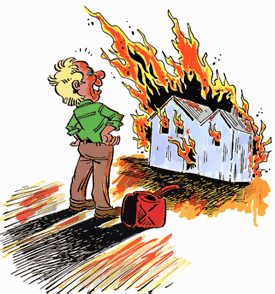pyro-, pyr-
(Greek: fire, burn, burning, heat, produced by heating, hot; and sometimes also referring to "fever as shown at this link")
2. A treatise on heat; or the natural history of heat, latent and sensible.
3. That branch of physical science which deals with the properties, phenomena, or effects of heat; also, a treatise on heat.
2. The transformation of a substance produced by the action of heat
Hypomagma is defined as a relatively immobile, viscous lava that forms at depth beneath a shield volcano, and which is under saturated with gases, and initiates volcanic activity.
On the other hand, when the fire didn’t crackle, but burnt silently in a pyramidal form, a bad omen was predicted, even when it was difficult to kindle, disturbed by wind or slow to consume the victim.
Mantics also observed flames of torches by throwing powdered pitch into the flames. Another aspect is pyroscopy (based on the burn stains left on a light surface after burning a sheet of paper).
2. An irrational desire to set destructive fires and to watch things burn up: The arsonist was accused of being possessed with pyromania again because she was known to have ignited buildings in the past and just stand nearby to see the flaming structures go up in smoke and she was seen in the vicinity of this new conflagration as she stood across the street from the building as it was being demolished.

Go to this Word A Day Revisited Index
so you can see more of Mickey Bach's illustrations.


Go to this Word A Day Revisited Index
so you can see more Mickey Bach illustrations.
"Pyromaniacal fires can be very destructive and even cause deaths for those who are in a building that a pyromaniac has purposely set on fire."

There's nothing consistent about human behavior except its tendency to drift towards evil.
Cross references of word groups that are related, directly, indirectly, or partly to: "fire, burn, glow, or ashes": ars-, ard-; -bust; cand-, cend-; caust-, caut-; crema-; ciner-; ether-; flagr-; flam-; focus, foci-; fulg-; gehenna-; ign-; phleg-; phlog-; pyreto-, -pyrexia; spodo- (ashes; waste); volcan-.


